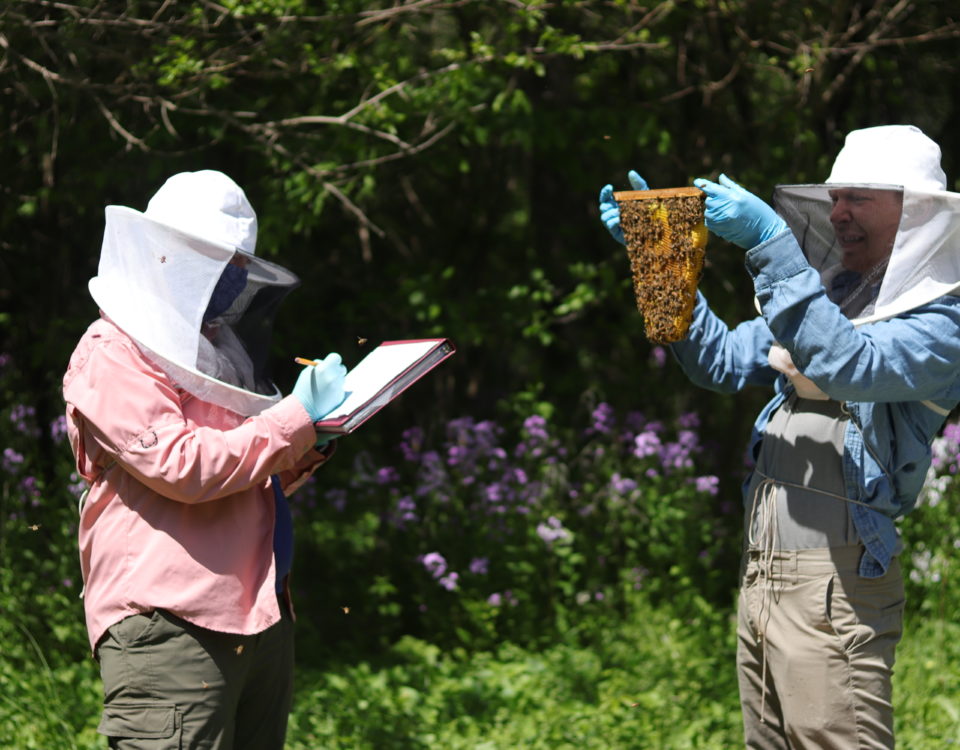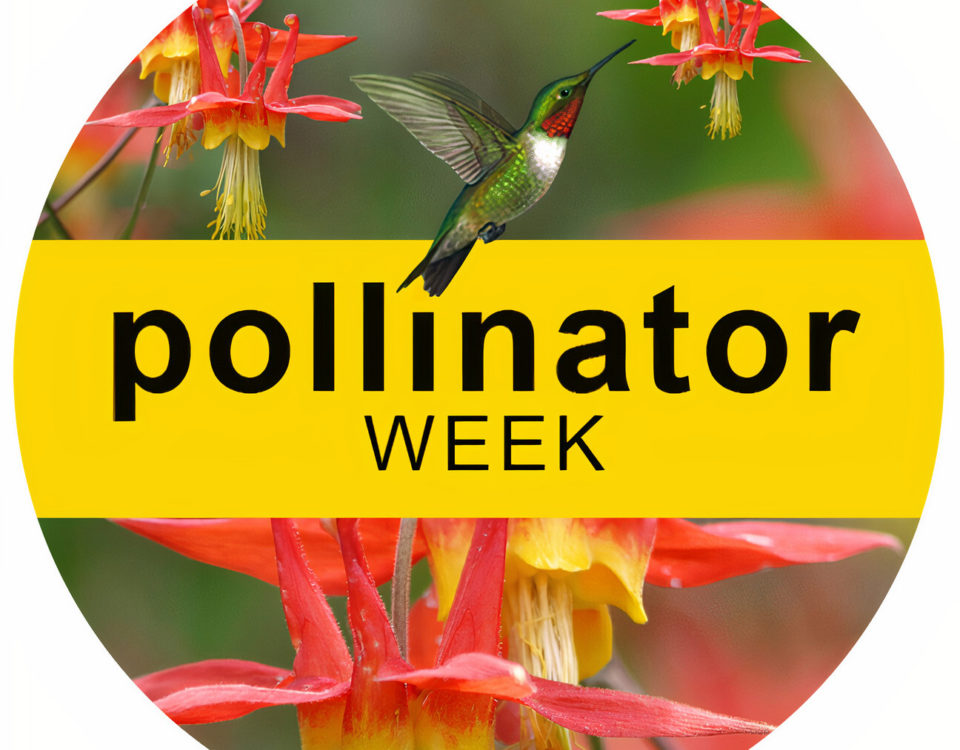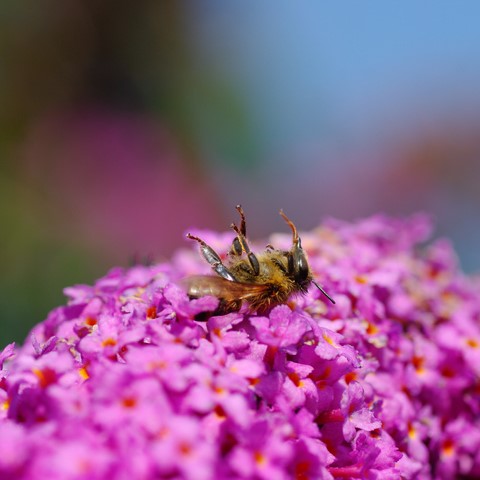- All-In-One Beekeeping for the Bees
- +1-608-728-8233
- info@beepods.com
Nucleus Colony or Packaged Bees – Which is right for you?

On the left is an example of a package; on the right is a nuc from our nursery

On the left is an example of a package; on the right is a nuc from our nursery
Well, it’s that time of year again – time to order your bees! There are a few reasons that you may need to buy bees: maybe your hive didn’t survive the winter and you need to start over. Perhaps you’re a new beekeeper just starting out. Or, maybe you just want to try a new honey bee species (check out our quiz to find out which kind is best for you!). No matter what the reason, now is the time to put in your order.
Before you order your bees, you will need to decide whether to order them as a nuc (from a nucleus hive) or a package. We will take a deeper dive into the pros and cons of each in a little bit, but first we’d like to give just a general description of what nucs and packages are.
A nuc is a partially developed colony. That means that they already have some food stores built up, but they don’t have a proper home yet. A package is a box of bees that can be sent through the mail. Got it? Great! Now let’s get down into the nitty-gritty.
Nucleus Hive
Pros

A full nuc of bees ready to go to their new home
There are a lot of great reasons to buy a nucleus hive. First of all, since it is a partially developed colony, the bees have already built up some of their infrastructure, including honey stores and brood nest. Because of this, they have a jump start on the season, since they don’t have to work as hard to collect nectar and pollen. This means that they can be ordered later in the season than packages, and still be able to build up enough supply for the winter. They also don’t have to worry as much about replacing their population, since their brood has already been started.
Speaking of brood, nucs also have the advantage of already having an established queen. She has been accepted by the colony, so you don’t have to worry about the colony rejecting and killing her.
In order for the colony to have developed, it had to undergo several regular inspections before being moved into a harvest box and transported to your door. Because of this, the colony is likely to be far stronger than its package counterparts.
Since the bees were moved on their own bars, installing them into their new home is a cinch! All you need to do is move the bars of comb from the harvest box into the hive. They’ll hardly notice the difference.
Cons

The Beepods nuc nursery
Though nucs have a lot going for them, they also have some fairly hefty cons. Firstly, they are difficult to transport. Since nucs come with frames of comb, which are quite fragile, nucs can’t be shipped. Instead, they need to be transported very carefully, either delivered by the supplier or picked up by the beekeeper. The main issue with this is that a supplier would need to be within easy driving distance, and that is not always possible to find.
Nucs are also quite a lot more expensive than packages. The higher costs come from the raising of the colony, since each colony has to be carefully cultivated before being transported to its new home, as opposed to packaged bees, which are taken from a hive and put into a box with a new queen from a different hive.
Package
Pros

Packages of bees ready to be shipped out
Packages are the most common way to buy bees, and it’s not exactly surprising. They are far cheaper to buy than nucs, and far easier to transport.
The reason that packages are so much cheaper is that the bees are raised in hives and then removed and put into boxes, which are filled to a certain weight. They are not shipped with comb or bars – it’s literally just a box of bees. Costs are also kept down by not keeping a colony all together. Unlike a nuc, where the colony is raised and transported as a whole, queen, workers, and comb, packages are made up of worker bees and a queen that almost always comes from a different hive.
As with nucs, installation is extremely easy – all you need to do is “dump” the bees into the hive, place the queen cage in the hive (you don’t want to release her too soon), and let them get to work! Package installations do take a bit more effort than nuc installations in that the queen needs to be introduced slowly in order to give the workers time to accept her. While the process is not necessarily difficult, it does take some time.
Cons
After being installed, packaged bees will need to get to work quickly. Since they were not shipped with any comb, they will need to start from scratch in their new home. They will need to build comb for honey stores and for brood, which they will need to replace the worker bees – and soon (remember, worker bees only live about 4-6 weeks).

Queen cages
Another problem with packages is that the queen usually comes from a different hive. So, while she is shipped with the workers, but in a separate cage, the workers are exposed to her pheromones, but they have not yet accepted her. As a result, there is a chance that once they have been installed, they will reject the queen and kill her. If she is not replaced in time, the whole hive will perish.
Since the colony was not shipped with comb, and therefore have not yet built up any food stores or done anything to establish the hive as “home,” there is a chance that the bees may decide to abscond.
Conclusion
There are many factors to consider when deciding whether to order your bees in a package or a nuc. How close are you to a supplier? What is your budget? Do you have the time to go through a queen introduction? How late in the season will you be ordering your bees? These are just a few of the questions that you should ask yourself before placing your bee order. No matter which you choose, we’re wishing you a happy, healthy hive!
Devon Rowley
Latest posts by Devon Rowley (see all)
- Why You Should Purchase the Beepods Online Course - May 16, 2018
- Hive Alive Review - March 16, 2018
- Nucleus Colony or Packaged Bees – Which is right for you? - March 13, 2018



